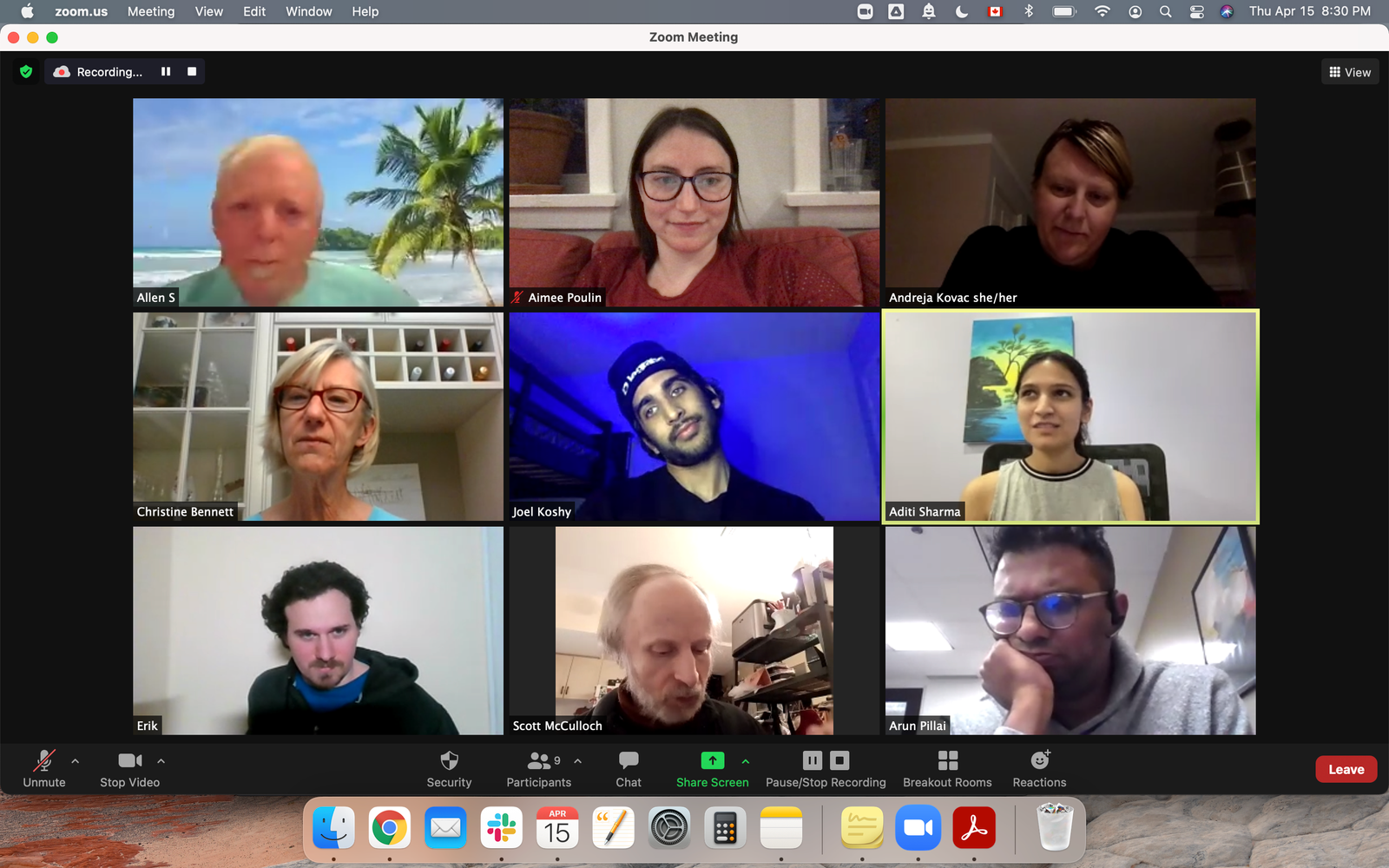For any of you wondering if a cold read is bringing a book to an ice fishing trip, you’re not entirely wrong! However, for thespians threading the stage boards for a living, a cold read is an entirely different type of fun or dread based on how much cold feet they have.
One would assume that actors are good readers since reading is a big part of their job. But surprisingly large number of actors have dyslexia, including Whoopi Goldberg and Jeniffer Anniston, and most absolutely hate cold reading. Actors are expected to interpret a character and that take time. Reading a piece of text for the first time is not the same as acting. However, even though most actors hate it, cold reading is an essential part of a skillset for an actor, used in many situations.
Different cold read situations
The ability to ace a cold read can be very valuable. It helps an actor stand out in an audition setting or work on devised work where script sometimes has to be read on the spot. Cold reading is a particularly useful skill in Canada where rehearsal times for a professional production can be sometimes just two to three weeks and actors need to memorize the lines fast. The ability to read the script on the spot is like a high performance athlete’s ability to summon a high level of mental and physical stamina needed for a successful performance in a competition.
What is cold reading
Cold reading in theatre is basically reading a text you have likely never read before, out loud, often in a high stakes situation such as an audition. For thrill seekers, it’s awesome, for routine lovers it’s the definition of dread.
It is related to improvisation and actors who are comfortable improvising, generally feel less stressed when asked to perform a cold read. However, the fact that they are less stressed doesn’t actually mean they are better at it.
What makes a good reader?
Reading seems simple but it is in fact a highly complex activity that requires several parts of our body and brain to work simultaneously in a synchronized manner. Reading can be practiced, improved and trained, like a muscle. When reading, our mouth is forming shapes that influence what sound is being heard. We control the intake of air that allows for the speaking to take place. We move our eyes over the script placing focus on different parts of the text almost like a camera; we can choose to focus on a particular word or perceive a section. During reading, our brain coordinates the activities of the eyes, breath and connects the sounds with meaning. All of these functions seamlessly take place when a person is reading.
There has been a great deal of research done on reading. Researchers have established that reading consists of cognitive functions and metacognitive functions. Cognition refers to mental functions such as remembering, focusing attention, and processing information. Metacognition refers to people’s awareness of their cognition; that is, their thoughts about their own thinking.
Good readers are strategic.
Lorem ipsum dolor sit amet, consectetur adipiscing elit. Ut elit tellus, luctus nec ullamcorper mattis, pulvinar dapibus leo.Lorem ipsum dolor sit amet consectetur adipiscing elit dolor
What Do Good Readers Do As They Read?
Before reading, good readers tend to set goals for their reading. They note the structure, or organization of the text, and often create a mental overview or outline of the text to help them decide whether it is relevant to their goals. For example: if they are looking to learn about the cognitive aspect of good reading good readers will scan the text to find parts that relate to that, skip parts they talk about unrelated things and quickly scan the rest of the text to catch parts that are feeding into the reading goal, in this instance the cognitive spect of god reading.
Good readers are selective as they read and they constantly categorize what is important, what is supportive, and what is less important. Good readers reread parts they felt they didn’t undress well. Good readers also skip passages they find less important for their reading goal.
Good readers continuously evaluate their predictions and revise them as needed.
Good readers connect the meaning of one sentence to the meaning of another. They are adept at using their background knowledge to make predictions about what might happen next and to understand ideas as they encounter them. As they read, good readers draw on their background knowledge or look for cues in the text to supply information about characters or events that the author has not provided directly.
Some good readers may also create mental images, or visualize a setting, event, or character to help them understand a passage in a text.
Good readers monitor their comprehension as they read. When they realize that they do not understand what they are reading, they apply procedures to “repair” or “fix-up” their lack of understanding. For example, they may ask themselves questions about the meaning of what they are reading, they may rephrase a passage in their own words, they may look up the meanings of difficult words, or they may outline the content of the text.
After reading, good readers often think about, or reflect on what they read. They may mentally summarize major points or events in the text, or even go to other sources to find additional information about the topic of the reading.

How Do Poor Readers Differ From Good Readers?
In contrast to good readers, most poor readers do not read strategically. Seldom, they read too slowly, they often do not comprehend much of what they read because they place too much focus on individual word rather than the text’s message.
Poor readers often lack sufficient background knowledge about the topic of a text. They may have trouble connecting the ideas of a text. They often are not familiar with the vocabulary they encounter, and have trouble determining word meanings. Further, even when poor readers possess relevant background knowledge, they frequently are not able to activate it to help them understand what they read.
Typical poor readers rarely prepare before reading. They often begin to read without setting goals. They seldom consider how best to read a particular type of text.
All too often Some poor readers also are unaware of text organization. They do not know enough about the organizational structure or lack the understanding of punctuation.
After reading, poor readers almost never seek out additional information about a topic.
Do actors need to be good readers?
Actors should practice reading and aim to improve their reading skill. In a cold read an actor is required to do much more than just read: they are required to instantly recognize clues of the characters emotional state and regulate the breath and the sound in a way that allows the actor to create words shaped by intention.
For example: a sentence to be or not to be can be read out by just sounding out letters, which will make a person sound like a very basic robot. Recognizing the punctuation and the meaning of the words allows the actor to break down the tempo of the read into smaller units. And finally, by establishing what is the characters relationship to life (being) and death (not being) and actor can create interpretation, give the character a unique thought they are contemplating in that particular moment. The same sentence ‘to be or not to be” will sound entirely different when read by a character who adores life versus a character that is tired of life. Another level of complexity can be added by when a character is contemplating ending their life or not. This basically gives the actor 4 combinations on just one line:
- the character loves life but they want to end it
- the character hates life and they want to end it
- the character loves life and they want to live
- the character hates life but they want to live
Of course there are many more possibilities than just these basic dichotomies but this example is a simple way to demonstrate a range of possibilities an actor has during a cold read on just one line.

How to improve cold reading?
Participating in improvisation groups or taking improvisation classes can lessen the anxiety and fear of being asked to cold read on the spot.
Practicing reading, especially reading out load, methodically is a good way for actors to improve their reading skills. Every actor should be aware of and practice the following:
- Read the punctuation properly
- Sounding out all letters of the word
- Not “gluing” all words together
- the character hates life but they want to live
All of the elements mentioned above can be practiced. Punctuation is sort of a road map around the text, stop whenever you see a punctuation mark and make sure to learn how is each punctuation mark affecting the voice tonality. Search for some videos with vocal exercises or simply sound out a word one sound at the time. Think about where in the sentence would you pause. How does your pause impact the words and the meaning of the whole sentence. What word is the carrier of the meaning in the sentence? Where is it placed? Usually not at the end. Can you repeat what you just read without looking at the page? Can you rephrase it using your won words? Who are you taking to? What is your relationship to that person or subject? If you are reading for the character, who is the character?
Reading is an essential skill for every actor. Although it is tempting to just watch videos about everything and anything, reading will result in a range of skills. Start with short reading assignments. Read poems, newspaper articles, before growing into an expert reader diving into philosophical or legal documents, or James Joyce’s novels. Reading is like compounding interest, the more you read the more you know, and the easier it is to ace that cold read at the next audition.



